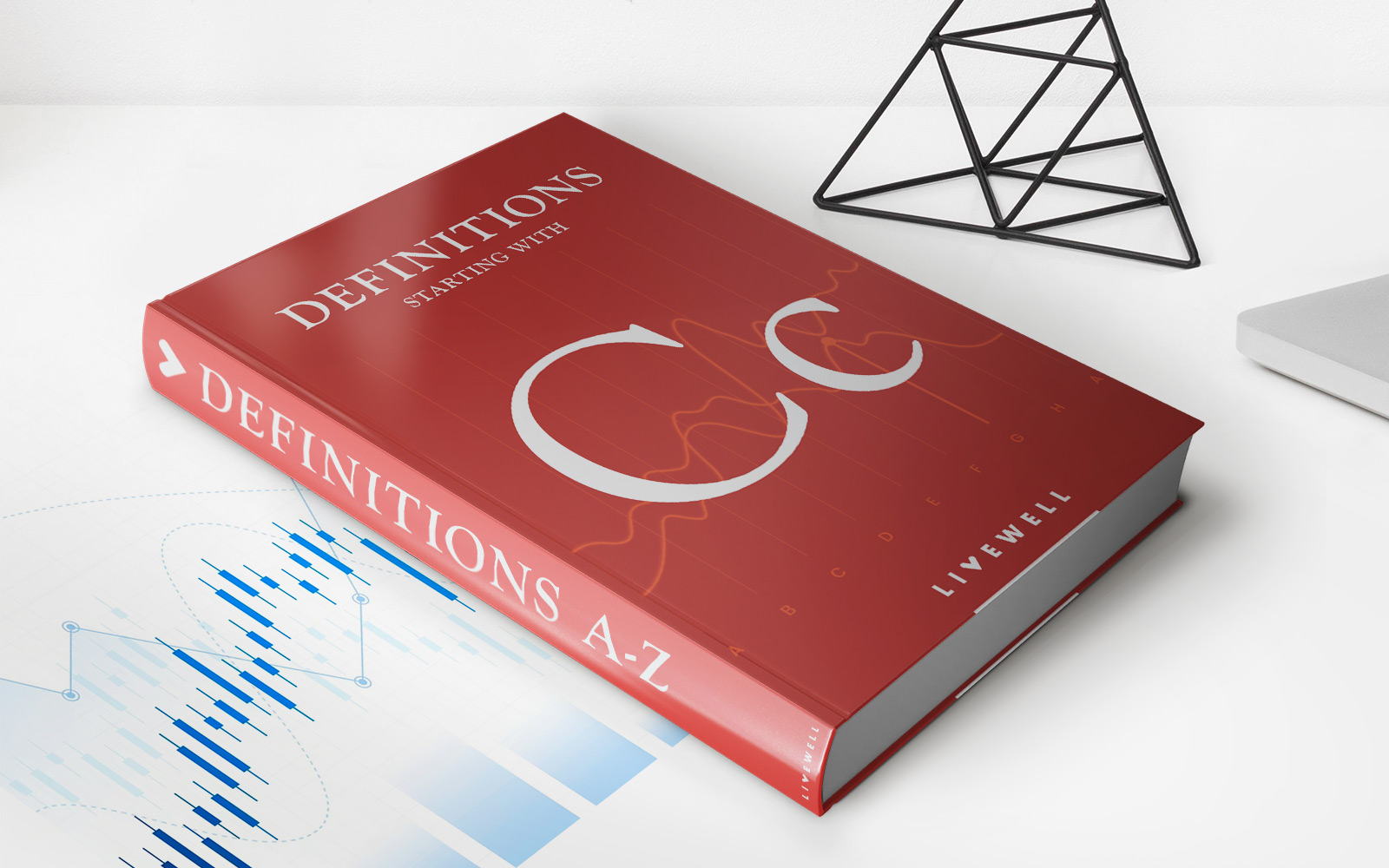

Finance
How Do Student Loans Affect Buying A House
Modified: March 1, 2024
Learn how student loans impact your ability to buy a house and navigate the financial obstacles. Understand the correlation between finance and homeownership.
(Many of the links in this article redirect to a specific reviewed product. Your purchase of these products through affiliate links helps to generate commission for LiveWell, at no extra cost. Learn more)
Table of Contents
Introduction
Buying a house is often considered a major life milestone, symbolizing stability, independence, and the achievement of long-term goals. However, for many individuals burdened with student loans, this dream can feel out of reach. Student loans have become an increasingly common financial obligation for millions of people, and they can significantly impact one’s ability to secure a mortgage and purchase a home.
Understanding the relationship between student loans and the process of buying a house is crucial for anyone considering homeownership. This article will delve into the various ways in which student loans can affect the home buying journey, from impacting debt-to-income ratios to influencing credit scores and down payment requirements. We will explore strategies to manage student loans effectively while still working towards homeownership.
It’s important to remember that while student loans can present challenges, they are not insurmountable obstacles. With proper planning, financial discipline, and an understanding of the available options, individuals with student loans can successfully navigate the path to homeownership.
So, if you’re wondering how student loans might impact your ability to buy a house, read on to gain valuable insights and practical advice on managing this complex financial landscape.
Understanding Student Loans
Before diving into the ways student loans can affect buying a house, it’s essential to have a basic understanding of what student loans are and how they work. Student loans are financial tools designed to help individuals fund their education expenses, including tuition, books, and living costs. They are typically obtained through government programs or private lenders.
There are two main types of student loans: federal and private. Federal student loans are issued by the government and offer various benefits such as fixed interest rates, flexible repayment options, and potential loan forgiveness or discharge programs. Private student loans, on the other hand, are obtained from banks, credit unions, or other financial institutions. They often have higher interest rates, fewer repayment options, and less generous forgiveness programs compared to federal loans.
Student loans come with repayment terms that vary based on the type of loan. Generally, repayment begins after a grace period, which is typically a few months after graduation or when a student drops below half-time enrollment. Repayment plans can range from standard fixed monthly payments over a specified period to income-driven plans that adjust payments based on income and family size.
It’s important to note that student loans accrue interest over time, potentially increasing the total amount owed. Interest rates for federal loans are generally lower compared to private loans. Understanding the terms of your student loans, including interest rates, repayment options, and total outstanding balance, is crucial when assessing your financial readiness to buy a house.
Now that you have a basic understanding of student loans, let’s explore how they can impact your ability to buy a house.
Impact of Student Loans on Debt-to-Income Ratio
The debt-to-income (DTI) ratio is one of the key factors lenders consider when evaluating a borrower’s eligibility for a mortgage. It represents the percentage of a person’s gross monthly income that goes towards debt payments, including student loans, credit cards, car loans, and any other outstanding debts.
Student loans can have a significant impact on your DTI ratio, potentially affecting your ability to qualify for a mortgage. If you have a high DTI ratio, lenders may view you as a higher-risk borrower, as a large portion of your income is already dedicated to debt payments.
Most lenders follow the “28/36” rule, which means that your monthly housing expenses should not exceed 28% of your gross monthly income, and your total monthly debt payments should not exceed 36% of your gross monthly income. These limits ensure that borrowers have enough income left over to cover other living expenses and maintain financial stability.
When calculating your DTI ratio, lenders typically include your minimum monthly student loan payments, even if you’re on an income-driven repayment plan where your payments are lower. However, if you’re on an income-driven plan and can provide documentation of your actual monthly payment, some lenders may use that lower figure in their calculations.
If your DTI ratio is too high due to student loan payments, you may need to explore options to lower your debt or increase your income. This could involve refinancing your student loans to obtain a lower interest rate or extending the repayment term to reduce monthly payments. Alternatively, you could consider increasing your income through a higher-paying job or side hustles.
Before applying for a mortgage, it is important to assess your DTI ratio and take steps to improve it if necessary. Lowering your DTI ratio by reducing your overall debt or increasing your income will increase your chances of qualifying for a mortgage and obtaining favorable terms.
Credit Score and Student Loans
Your credit score plays a crucial role in the mortgage approval process. It reflects your creditworthiness and indicates how likely you are to repay your debts. Student loans can have both positive and negative impacts on your credit score, depending on how you manage them.
Consistently making on-time payments towards your student loans can have a positive impact on your credit score. Payment history is one of the most important factors in determining your credit score, and demonstrating a responsible repayment pattern can help boost your creditworthiness.
Conversely, if you miss payments or default on your student loans, it can have a detrimental effect on your credit score. Late payments, delinquencies, or defaults can lower your score and make it harder for you to qualify for a mortgage or obtain favorable interest rates.
It’s essential to regularly monitor your credit report to ensure the accuracy of the information and identify any potential issues. You are entitled to one free credit report per year from each of the three major credit bureaus (Equifax, Experian, and TransUnion). Reviewing your credit report can help you identify any errors or discrepancies and take the necessary steps to rectify them.
If you have student loans and want to improve your credit score, consider the following tips:
- Make all your payments on time, without fail.
- If possible, pay more than the minimum required payment to reduce your outstanding balance more quickly.
- Avoid taking on additional debt while you have student loans. Maintaining a low credit utilization ratio (the amount of credit you’re using compared to your credit limit) is beneficial for your credit score.
- Do not close old student loan accounts once they are paid off. Keeping the accounts open and in good standing can help establish a longer credit history.
- Limit credit inquiries. Applying for new credit can temporarily lower your credit score.
By managing your student loans responsibly and maintaining a good credit score, you will increase your chances of qualifying for a mortgage with favorable terms.
Saving for a Down Payment with Student Loans
Saving for a down payment is an essential step in the homebuying process. A down payment is a portion of the home’s purchase price that you pay upfront, reducing the amount you need to finance with a mortgage. While having student loans can make it challenging to save for a down payment, it is not impossible.
Here are some strategies to consider:
1. Create a budget: Evaluate your income and expenses to identify areas where you can save. Cut back on non-essential expenses and redirect those funds towards your down payment savings account.
2. Set a goal: Determine how much you need to save for a down payment and set a realistic timeline. Break down the goal into smaller monthly or weekly amounts to make it more manageable.
3. Automate savings: Set up automatic transfers from your checking account to a designated savings account specifically for your down payment. This ensures consistent and disciplined savings without the temptation to spend the money elsewhere.
4. Explore down payment assistance programs: Some local and state governments, as well as nonprofit organizations, offer down payment assistance programs for first-time homebuyers. Research these options to see if you qualify for any assistance.
5. Use windfalls wisely: If you receive unexpected money, such as a tax refund, work bonus, or monetary gifts, consider putting a portion or all of it towards your down payment savings.
6. Consider down payment alternatives: If saving for a traditional down payment seems unattainable, explore alternative options such as low down payment mortgage programs or negotiating seller concessions.
7. Prioritize student loan repayment: While saving for a down payment is important, it shouldn’t come at the expense of neglecting your student loan payments. Strive to strike a balance between saving for a down payment and meeting your student loan obligations.
Remember, the size of your down payment can impact the terms of your mortgage, including interest rates and monthly payments. The more you can save, the better positioned you will be to secure a favorable mortgage.
Qualifying for a Mortgage with Student Loans
Qualifying for a mortgage with student loans is possible, but it can require some careful planning and preparation. Lenders consider several factors when evaluating your mortgage application, and your student loans will undoubtedly be taken into account.
Here are some key points to keep in mind:
1. Debt-to-Income (DTI) Ratio: We mentioned earlier that your DTI ratio is an important consideration for lenders. It’s crucial to manage your student loan payments in a way that keeps your DTI ratio within an acceptable range. Paying down other debts or increasing your income can help improve your ratio and increase your chances of mortgage approval.
2. Credit Score: Your credit score plays a significant role in mortgage qualification. Aim to maintain a good or excellent credit score by making on-time student loan payments and managing your other debts responsibly. Lenders typically prefer borrowers with credit scores of 620 or higher.
3. Loan Type and Down Payment: The type of mortgage you apply for and the size of your down payment can also impact your eligibility. Some loan programs, such as FHA loans, may have more flexible requirements for borrowers with student loans. Additionally, a larger down payment can help offset the impact of student loans on your approval.
4. Income Stability: Lenders want assurance that you have a stable income to support your mortgage payments. If you’re in a field with strong job prospects or have a steady employment history, it can work in your favor. However, if you’re in a fluctuating or newer job, lenders may be more cautious.
5. Documentation: Be prepared to provide detailed documentation regarding your student loans, including loan statements, payment history, and any loan forgiveness or income-driven repayment plans. Having these documents readily available can speed up the mortgage application process.
It’s important to note that every lender may have different criteria and requirements, so it’s recommended to shop around and compare mortgage options. Consulting with a mortgage lender or a financial advisor can provide valuable guidance based on your specific situation.
Remember, having student loans doesn’t automatically disqualify you from obtaining a mortgage. By managing your student loans responsibly, maintaining a good credit score, and carefully considering your financial options, you can increase your chances of qualifying for a mortgage that fits your needs.
Repayment Options for Student Loans
When it comes to repaying your student loans, it’s essential to understand the various options available to you. Different repayment plans can help you manage your student loan debt while still pursuing your goal of buying a house.
Here are some common repayment options for student loans:
1. Standard Repayment: This is the default repayment plan offered for federal student loans. It involves fixed monthly payments over a 10-year term. While it may result in higher monthly payments, it allows you to pay off your loans quicker and potentially save on interest in the long run.
2. Graduated Repayment: Graduated repayment plans start with lower monthly payments that gradually increase over time. This option can be beneficial for individuals who anticipate their income will increase in the future. However, keep in mind that the total amount paid over the life of the loan may be higher due to accruing interest.
3. Income-Driven Repayment: Income-driven repayment plans adjust your monthly payments based on your income and family size. These plans can be helpful if you have a lower income compared to your student loan debt. Income-Driven Repayment options include Income-Based Repayment (IBR), Pay As You Earn (PAYE), Revised Pay As You Earn (REPAYE), and Income-Contingent Repayment (ICR).
4. Refinancing: Refinancing involves obtaining a new loan with better terms to replace your existing student loans. This can be done through a private lender. By refinancing, you may be able to secure a lower interest rate, reduce your monthly payments, or change the repayment term. However, refinancing federal loans with private loans forfeits federal loan benefits, such as loan forgiveness and income-driven repayment options.
Each repayment option has its pros and cons, and it’s important to evaluate which one aligns best with your financial situation and long-term goals. Remember that making consistent, on-time payments is key to successfully managing your student loans and maintaining good credit.
Repayment plans can also impact your debt-to-income ratio, as discussed earlier. Keep in mind that if you are planning to apply for a mortgage, lenders may consider your monthly student loan payments when determining your eligibility and the amount you can borrow.
Be sure to research and understand the terms and requirements of each repayment option. Consider consulting with a financial advisor or lender to determine the best approach for managing your student loans while working towards buying a house.
Strategies to Manage Student Loans and Buy a House
Managing student loans while saving for a down payment and buying a house may require some careful planning and strategic decision-making. Here are some strategies to help you successfully navigate this financial balancing act:
1. Create a comprehensive budget: Start by assessing your income, expenses, and debt obligations. Develop a budget that allows you to meet your student loan payments while setting aside funds for your down payment savings. Consider cutting back on discretionary expenses and finding creative ways to save money.
2. Prioritize debt repayment: While saving for a down payment is important, it’s crucial not to neglect your student loan payments. Strive to make consistent, on-time payments to avoid any negative impact on your credit score and eligibility for a mortgage.
3. Explore forgiveness or repayment assistance programs: Depending on your profession or income level, you may qualify for loan forgiveness or repayment assistance programs. Research government programs, employer-sponsored benefits, or state-specific options that can help reduce your student loan burden.
4. Refinance your student loans: If you have good credit and a stable income, refinancing your student loans could be a viable option. By refinancing, you may be able to secure a lower interest rate or adjust the repayment terms, potentially reducing your monthly payments and freeing up some funds for your down payment savings.
5. Save aggressively: Set a specific savings goal for your down payment and commit to saving as much as possible. Consider automating your savings by setting up automatic transfers to a separate savings account dedicated to your down payment. Take advantage of windfalls and bonuses to boost your savings even further.
6. Consider assistance programs: Look into down payment assistance programs available in your area. Some programs offer grants or low-interest loans to help first-time homebuyers overcome the hurdle of a down payment. Research local, state, and federal programs that may be applicable to your situation.
7. Consult with professionals: Seek guidance from a mortgage lender or a financial advisor who can provide personalized advice based on your financial situation. They can help you understand your mortgage options, provide valuable insights on managing student loans, and assist you in optimizing your financial strategy.
Remember, successfully managing student loans while buying a house requires a careful balance between debt repayment, savings, and budgeting. Prioritize your financial goals, stay disciplined, and be patient. It may take time, but with proper planning and determination, you can achieve both your homeownership and student loan payoff goals.
Conclusion
Navigating the path to homeownership can be challenging when you have student loans. However, with proper planning, financial discipline, and strategic decision-making, it is possible to manage your student loans while working towards buying a house.
Understanding the impact of student loans on your debt-to-income ratio, credit score, and down payment savings is crucial. By managing your student loan payments responsibly, making on-time payments, and exploring repayment options that suit your financial situation, you can improve your chances of qualifying for a mortgage with favorable terms.
Saving for a down payment may require making sacrifices and prioritizing your financial goals. Creating a budget, exploring down payment assistance programs, and considering alternative down payment options can help you accumulate the funds needed to make your homeownership dream a reality.
It’s important to stay proactive and stay informed about the various resources and programs available to help manage your student loans. Explore loan forgiveness or repayment assistance programs that may be applicable to your specific circumstances.
Consulting with professionals, such as mortgage lenders or financial advisors, can provide valuable guidance tailored to your situation. They can help you understand your options, optimize your financial strategy, and make informed decisions that align with your long-term goals.
Remember, the journey towards buying a house while managing student loans requires patience, perseverance, and careful financial planning. With the right approach, you can strike a balance between your student loan obligations and your homeownership aspirations, ultimately achieving both financial milestones.














